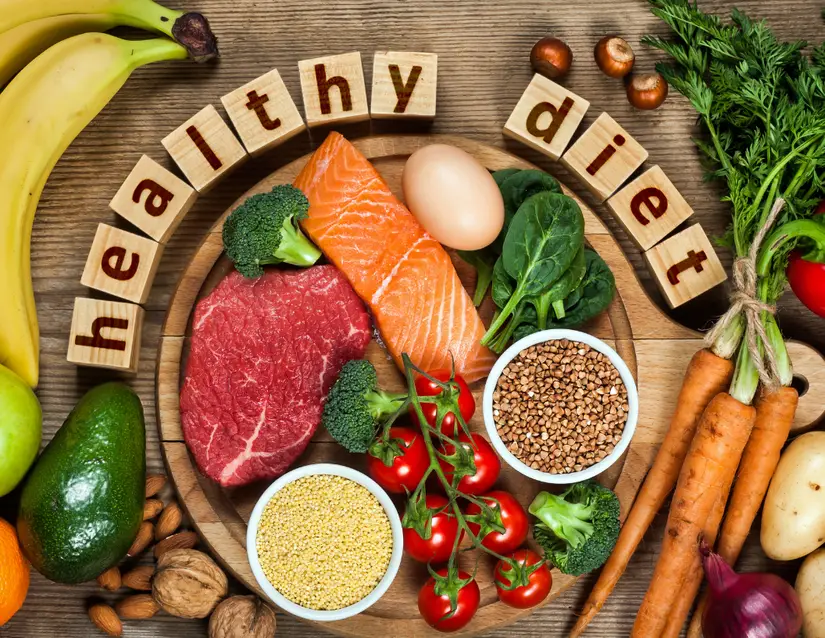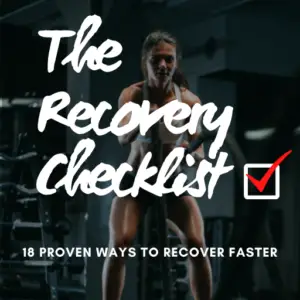Have you seen the “Intermittent Fasting” headlines?
Citing a recent study, the headlines declare intermittent fasting for weight loss is “not very helpful” and there’s “no benefit” to the strategy. It’s one way to interpret the study, but definitely the wrong one.
Let’s examine the study, discuss the results and understand why the findings aren’t anti-fasting.
If you are unfamiliar with intermittent fasting, check out this primer from Johns Hopkins.
The Intermittent Fasting for Weight Loss Study
The 2022 study recruited 139 people with obesity who wanted to drop a few pounds. Group 1 did intermittent fasting for weight loss, eating within an 8AM to 4PM feeding window each day. Group 2 ate on a normal schedule.
Both groups ate a calorie-restricted diet, just 1200-1800 calories per day. So the intermittent fasting group didn’t get to scarf down junk food during their “feeding window.”

The study lasted 12 months. And both groups lost weight.
On average, Group 1 members lost 17.6 lbs from intermittent fasting. The average Group 2 member lost 13.9 lbs while eating on a normal schedule.
Not bad at all! Statistical analysis showed weight loss was similar between groups (p=0.11). Too similar to indicate a true difference (p<0.05). Hence, researchers concluded there wasn’t a significant difference between groups.
This conclusion prompted off-the-wall takes like “intermittent fasting [is] not very helpful for weight loss.” Or the NYT boldly claiming “No Benefit to Time-Restricted Eating.”
The Right Conclusion
The real takeaway is this: calorie-restricted diets cause weight loss over 12 months. And intermittent fasting is one way to do it. 85% of study participants finished the study. So it’s sustainable.
But intermittent fasting is not the only way. It’s (almost) all about the calorie deficit.
To summarize, intermittent fasting for weight loss is a sustainable long-term strategy when it creates a calorie deficit. You can’t wolf down ice cream sandwiches during your “feeding period” and expect intermittent fasting to work.

What’s The Deal With Keto?
The ketogenic diet is a low-carb, high-fat approach. Adherents eat lots of steak, cheese, bacon, and nuts.
They avoid carbs like sugar, bread, rice, and pasta. Their hobbies may include growing thick beards, CrossFit, and talking about their ketogenic diets.

Low-carb diets seem to create more short-term weight loss, partly due to less water retention (Kirkpatrick 2019).
But low-carb diets are no better than low-fat diets after a year. And sticking to a keto diet over the long-term is difficult.
One recent study found that adults eating a low-fat, plant-based diet ate fewer calories and lost more weight than the keto group (Hall 2021).
Overall, a ketogenic diet can produce impressive short-term weight loss. But experts doubt its sustainability (and whether it’s healthy to eat all that cheese).
Can’t I Just Eat Healthy?
Imagine this:
For a month, you eat 300 calories worth of almonds every day. The next month, you enjoy 300 calories worth of french fries on a daily basis.
Otherwise, your diet is normal. Will you gain weight from eating the french fries?

A fascinating study put the “french fries vs. almonds” question to the test (Smith 2022).
The results: The group eating french fries did not gain extra fat compared to the sad saps stuck with almonds.
The study isn’t suggesting that french fries are as healthy as almonds.
But if calorie intake is equal, don’t expect “junk food” to produce weight gain or “healthy food” to cause weight loss.
I’m a huge proponent of healthy eating. Whole, unprocessed foods improve our health (unrelated to weight) and make us feel more full. And satiety (that can’t-eat-another-bite feeling) makes it easy to eat less.
No Free Lunches
So what does all this research tell us?
I hate to rewind to high school physics (but I’m going to): Calories are energy. And energy cannot be created or destroyed. Just repackaged in different forms. That’s the 1st Law of Thermodynamics. (See, high school science wasn’t a complete waste of time).
The “calories in vs. calories out” equation is consistent with this law. Calorie intake > calorie expenditure leads to weight gain (i.e. energy stored as muscle or fat). And calorie intake < expenditure causes weight loss (i.e. energy lost to the environment as motion, heat, etc.).
There’s no “hack” to get around this law. There’s no “free lunch,” no diet plan where eating more calories than we expend leads to long-term weight loss.
Not keto, not intermittent fasting, not even eating “whole” for, and this is just a random time span, 30 days.
No diet is superior. There’s not “One diet to rule them all…and in the darkness, bind them.”
Now What?
Here are a few tips if you want to gain or lose weight:
1) Find What Works
When I want to drop a few pounds, intermittent fasting works great for me. I skip breakfast, then eat lunch and dinner.
I end up eating fewer calories because my “feeding window” is smaller. But I still get to enjoy big meals. And the morning hunger isn’t too bad.
Maybe keto or “whole” eating works better for you. Regardless, aim for small steps towards sustainable lifestyle change.
2) Move
Exercise is amazing for our bones, muscles, joints, sleep, well-being and mental health. And it uses energy, making it easier to create a calorie deficit and lose weight.
Want to gain weight? Focus on progressive resistance training, the fastest route to adding muscle mass. And eat enough to create a calorie surplus.
3) Eat More Protein
Whether you plan to gain muscle, lose weight or “gaintain,” it’s essential to eat enough protein. High protein diets promote satiety and muscle mass.
Learn why protein is considered the world’s best nutrient.
4) Track It
Log your food intake with the free MyFitnessPal app to get a clear picture of your daily nutrition.
Readers: Have you tried intermittent fasting for weight loss? How about any of the other diets mentioned? Share your thoughts in the comments.
For more evidence-based health tips, join the free Facts & Physio Newsletter. Plus, get The Recovery Checklist when you sign up.

